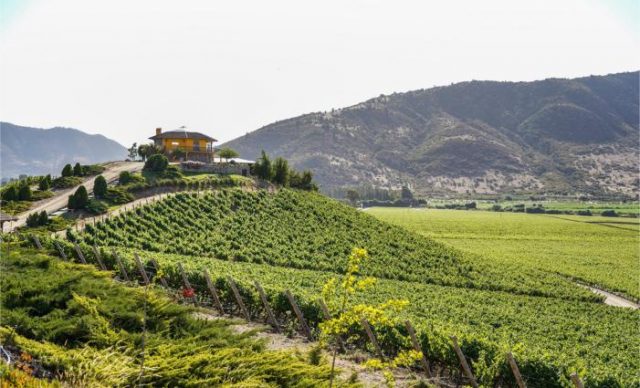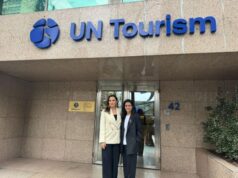Valle de Colchagua, Chile, 09 December 2019 – The 4th Global Conference on Wine Tourism, hosted by the World Tourism Organization (UNWTO) and the Government of Chile, has concluded with a call to use the sector’s unique ability to rejuvenate and support rural communities.
Held in the Colchagua Valley, home to some of Chile’s most prominent wine producers, the event saw more than 400 participants from destinations including Argentina, France, Italy, Portugal, South Africa, Spain and USA, come together to explore the many opportunities that wine tourism can bring. The event further strengthened ties between UNWTO and Chile, a Member State since 1979. The previous week, the United Nations specialized agency also presented the case for tourism as a key contributor to the sustainability agenda at the UN Climate Change Summit, COP25 in Madrid, held under the Presidency of Chile.
Welcoming delegates, UNWTO General-Secretary Zurab Pololikashvili said: “Wine tourism creates jobs and entrepreneurship opportunities. It touches all areas of the regional economy through its linkages to handicrafts, gastronomy and agriculture. There lies its great potential to generate development opportunities in remote destinations.”
In this regard, the Minister of Economy, Development and Tourism, Lucas Palacios, said that “wine tourism continues to grow thanks to the thrust of the vineyards that are challenged to go further and further, expanding their horizons beyond production and the sale of wine, but it is also thanks to the fact that, as a State, we have implemented a public policy that fosters sustainable tourism development, where we have tremendous potential.”
The Undersecretary of Tourism, Mónica Zalaquett, said that “this is an opportunity to show our territory. Today there are more than 100 vineyards open to wine tourism and this congress is about that. They are going to transfer knowledge, share experiences, promote dialogues and deliver tools, so that we can improve this wine tourism offer”.
In particular, the fourth edition of the most important annual event in enotourism, focused on the sector’s ability to transform rural communities, build economies and create jobs outside of major cities. Alongside sessions on tourism as a driver of rural socio-economic development, the conference also featured workshops and debates on how destinations can diversify and market themselves to meet changing consumer demands. At the same time, UNWTO experts also explained the potential benefits of embracing digital transformation and entrepreneurship in tourism, particularly in rural areas.
The Alentejo region in Portugal will host the 2020 edition of the UNWTO Global Conference on Wine Tourism. Next year will also be UNWTO’s year of ‘Tourism and Rural Development’, with a number of specially-themed events planned.












